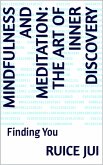The core philosophy centers around radical self-responsibility and rejects victim mentalities or external attribution for one's circumstances. It asserts that individuals alone are responsible for the reality they experience through the choices they make, no matter how unpleasant that reality may be. This uncompromising stance on personal accountability permeates the entire work.
On relationships, the piece takes an unromantic, pragmatic view, warning against emotional vulnerability, cautioning about the inevitability of betrayal, and advising a more detached approach to love. It portrays modern dating as a futile cycle of disappointment driven by idealistic illusions.
The philosophy also challenges mainstream self-help concepts like self-love, proposing that excessive self-absorption is the root of many problems rather than the solution. It advocates self-denial and prioritization of others instead.
Religious themes emerge as well, offering an unorthodox perspective on God's plan centering around self-sacrifice and service to others rather than personal fulfillment. It uses biblical references to emphasize the inherent struggles of life.
Overall, the piece does not aim to inspire or offer solace. Instead, it adopts a defiant, provocative posture designed to shatter comforting illusions and conventional thinking about love, life purpose, and personal growth. Its blunt intellectual honesty is both refreshing and unsettling, forcing deep self-reflection
Dieser Download kann aus rechtlichen Gründen nur mit Rechnungsadresse in A, B, CY, CZ, D, DK, EW, E, FIN, F, GR, H, IRL, I, LT, L, LR, M, NL, PL, P, R, S, SLO, SK ausgeliefert werden.









